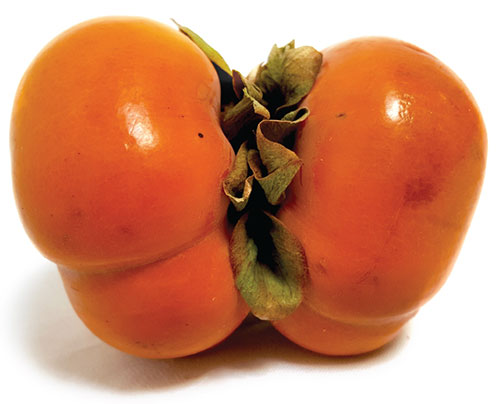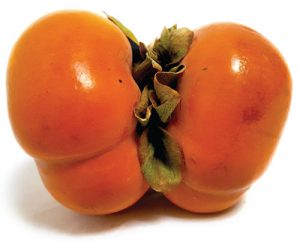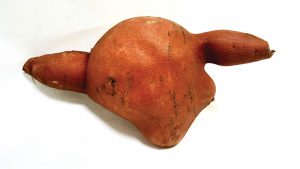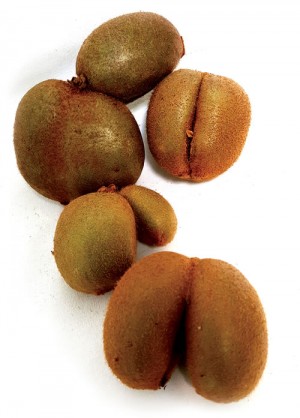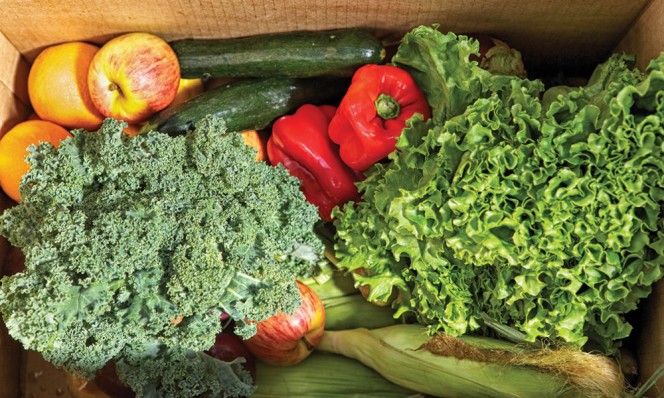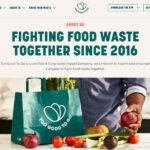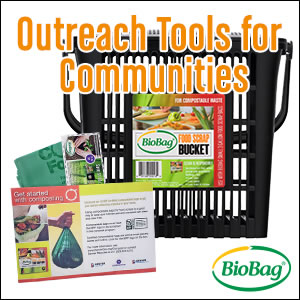Two companies purchase cosmetically imperfect produce from growers and repackage it to sell to households and businesses.
Claire Siegrist
BioCycle February 2016
Among the streams of wasted food in the U.S. is produce that doesn’t make it to market because of cosmetic imperfections. Two new companies, Imperfect and Hungry Harvest, have developed businesses around purchasing and distributing “ugly” produce. In Emeryville, California, Imperfect’s founders Ben Chesler, Ron Clark and Ben Simon, purchase ugly produce from California farms and sell it to consumers for 30 percent off supermarket prices. Hungry Harvest, operating in the mid-Atlantic region, also purchases imperfect produce from growers, and delivers packages to homes and businesses.
Imperfect
Rescuing and distributing edible food was already on Chesler and Simon’s radar. They were cofounders of the Food Recovery Network (FRN), a student-run food recovery group that collects unused food from campus dining halls and donates it to food pantries and shelters (see “Launching A Food Recovery Network,” January 2013). After college, the pair decided to head to California, where roughly half of America’s produce is grown. They teamed up with Ron Clark, who helped develop the California Association of Food Bank’s Farm to Family program. This successful program distributes 125 million pounds of “ugly” produce per year to food banks within California. Clark created a network of about 70 California growers to source the produce for the food banks. Chesler, Simon and Clark joined forces to start Imperfect in the San Francisco Bay Area last year.
In June 2015, Imperfect raised $38,000 through its IndieGoGo crowdfunding campaign, which helped finance a 5,000 square foot refrigerated warehouse in Emeryville and get the company up and running. Imperfect works with 20 to 30 farms in and around California. It purchases produce from these farms for $0.25 to $0.75/lb to make it worth the farms’ while to harvest the aesthetically-challenged produce. Many of the farms are members of California Food Bank’s Farm to Family program. The produce is packaged in boxes and delivered to home subscribers. It also services offices and other community drop-off points and has a bulk ordering program.
The misshapen produce is picked up from the farms by a variety of contracted trucking companies and produce distributors, and is delivered to the Emeryville warehouse. Often, Imperfect receives produce only a day or two before packaging. “Our operations team inspects the incoming produce, and samples each of the items to make sure the taste, freshness and durability is up to par,” explains Simon. “We then sort through all of the product and either approve it for sale, donation, or composting.” Donated produce is delivered to local partners in the community, mostly the Alameda Food Bank.
Subscribing customers can purchase a medium sized fruit-only, vegetable-only, or combined produce box that is 10 to 15 pounds and contains 4 to 7 types of produce for $14 to $16 per week, plus a small delivery fee. For the most part, subscribers receive what is in season, similar to traditional CSA (Community Supported Agriculture) subscription programs. Since January 1, 2016, Imperfect has been offering box customization, its first all-organic box, and a new branded box with recipes. With box customization, customers can select fruits and vegetables for their boxes and the size of the box. Mixed fruit boxes are offered in a variety of sizes from small to extra large, while fruit only or veggie only boxes are offered in small and medium sizes only. Customers can choose an all-organic mixed fruit box for an extra cost. Prices for the medium sized organic box range from $24 to $26 per week.
To date, Imperfect has sold over 130,000 lbs of produce. The company has 1,500 subscribers. Each week, 20 part-time employees deliver produce boxes using their personal vehicles to home and office addresses in Oakland, Berkeley, Albany, Alameda, and Emeryville, and to public pick-up locations in San Francisco, Lafayette and Concord. The company also offers an affordable way for low-income families to get fresh, quality produce for 33 percent off regular prices. And since July, Imperfect has been selling their product to Raley’s, a grocery chain in the Sacramento area, under the “Real Good” name. This pilot is currently under review for expansion.
Hungry Harvest
Now a nationally recognized business, Hungry Harvest was cofounded by Evan Lutz in May 2014 as a project at the University of Maryland. Hungry Harvest’s tagline, “we sell produce with a purpose,” encourages people to subscribe to a service that recovers food from farms and wholesalers due to logistical inefficiencies and cosmetically imperfect produce. It employs a team of four full-time and two part-time employees and services customers in Baltimore, Washington D.C., northern Virginia, and Philadelphia.
To launch Hungry Harvest, the cofounders, including Lutz and John Zamora, invested their life savings. In December 2014, the Conscious Venture Lab granted Hungry Harvest $25,000. On January 8, 2016, Lutz pitched his company’s business plan to the investors on the reality TV show Shark Tank and received $100,000 from Robert Herjavec for a 10 percent stake in the business. Now, Hungry Harvest has a pool of money to work with and has grown from just over 1,300 active customers with 3,000 more outside their current delivery zone.
Customers can choose between a recovered, organic, or all fruit harvest bag. Recovered harvest bags can be anywhere from 5 to 23 pounds of produce and cost $15 to $35 depending on size. Organic only harvest bags range in price from $30 to $55 and fruit only bags range from $25 to $35. Hungry Harvest hires about 30 independent contractors weekly to deliver the produce bags to residents and businesses.
The company has a network of 50 to 60 farms and wholesalers, five to six of whom they work with on a weekly basis, from all over the East Coast, mainly in Pennsylvania and Maryland. During the non-growing season (December to March), Hungry Harvest relies on shipments from warmer regions, such as Texas, Florida and California, and shipments of surplus produce from wholesalers. “Farms lose less money on their surplus produce by selling to us because it is money they wouldn’t be getting otherwise,” explains Lutz.
Hungry Harvest works with a variety of trucking companies to ship their imperfect produce to a warehouse in Jessup, Maryland, that houses its packing operations. The company hires homeless men from a local shelter to help with packaging. A team of 10 to 12 workers inspects the incoming produce and packs it into customer or donation boxes. (For every bag of produce sold, a small bag of produce is donated and distributed through Free Farmer’s Markets.) Less than 10 percent of the produce is inedible (e.g. moldy) and is composted at a facility in Jessup.
“We want to be the largest direct to home produce delivery service on the East Coast in five years, and the largest in the U.S. in 10 years,” says Lutz. By the end of 2016, Hungry Harvest expects to serve New York City, Northern New Jersey, Pittsburgh (PA) and Richmond (VA) in addition to its current distribution locations. “Our goal for 2016 is to sell one million pounds of produce to customers and donate 250,000 pounds to those in need,” he adds.
Claire Siegrist is a Contributing Editor to BioCycle.


